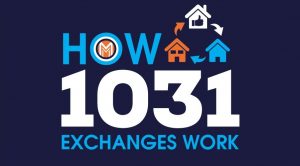FHA vs. Conventional Loans – What You Need To Know
Now that you’ve decided to start the home-buying process, it’s time to figure out which loan program is best for you. Since everybody’s situation is completely different, you’ll want to have a discussion with a mortgage professional help provide direction. After months of online browsing, it’s likely you’ve run into a jumble of curious letters, acronyms, and confusing names like FHA, VA, Fannie Mae, and Freddie Mac. What do they all mean and how do you know which one is right for you?
First off, lets look at the primary differences between an FHA loan and conventional loans, which includes Fannie, Freddie, and Jumbo loans. Even if it’s not your first time purchasing a home, it’s important to familiarize yourself once again since many historical differences between these types of loans have changed in recent years. The remaining differences have to do with mortgage insurance and a few underwriting guidelines.
Loan-Level Price Adjustments
Two very similar individuals with similar income might be better off on two completely different loan programs. One reason is because of Loan-Level Price Adjustments charged on conventional loans. These are risk-based fees assessed to mortgage borrowers using conventional financing. Since these fees are built into loan pricing (the premiums lenders earn by delivering your loan to Fannie Mae and Freddie Mac), the borrower typically doesn’t pay in the form of money but their interest rate gets adjusted. For example, an individual with an 800 credit score will have a better interest rate than somebody with a 660. Makes sense, right? Well, there are several other price adjustments. A condo or multi-unit property will likely have a higher interest rate than a single-family home. Your down payment percentage and whether or not you are buying a primary residence, second home or investment property can also impact your interest rate.
For a “vanilla” loan scenario where somebody has 5% down, a 780 credit score and purchasing an owner occupied single family detached home, this person would qualify for the best pricing possible. Their interest rate and monthly mortgage insurance would be the lowest available, keeping their monthly payment as low as possible with just 5% down payment. So, a conventional loan would be the best program for this particular borrower. However, FHA has far less pricing adjustments and is a bit more forgiving when it comes to your credit history and current credit scores. If the person in this above scenario had a 620 credit score, their interest rate and mortgage insurance would be substantially higher on a conventional loan due to the Loan-Level Price Adjustments. In this case FHA might be the better option since there total monthly payment would be lower.
Derogatory Seasoning, Credit Scores and & Debt Leniency
FHA has always been known as a “first-time homebuyer” program, even thought it’s not. People still label it this way because it caters to many individuals who have the some of the characteristics of a person who might be buying for the first time. Whether it’s a recent grad needing Mom and Dad to co-sign, somebody with very little savings or a person just starting to build up their credit, FHA can be very accommodating. However, there are many reasons why FHA might be the right program for move up buyers.
FHA has a much shorter seasoning period than conventional loans for people who are recovering from a bankruptcy, foreclosure or short-sale. FHA will allow for individuals with compensating factors to purchase with a credit score as low as 500, where as the minimum allowed by conventional is 620. FHA may also allow for debt-to-income ratios (the percentage of your gross monthly income allocated towards all your month debts) above 50% where conventional typically caps people around 45%.
Mortgage Insurance
The Federal Housing Authority (FHA) is a government agency created in 1934 to help more Americans own homes. Specifically, it provides mortgage insurance to the lender making the loan in case the borrower defaults (fails to pay) on the mortgage. The insurance premium is due no matter what size of a down payment the borrower makes.
FHA loans require a portion of the premium upfront (or at the time the mortgage is made) and monthly for the life of the loan (in most cases) and stays in place no matter how much equity accumulates in the property.
Conventional loans require mortgage insurance for the same purpose as an FHA mortgage (to protect the lender in case of a default on the mortgage), but only for loans with less than 20% down payment. The insurance is provided by private companies, which is where the term PMI comes from (private mortgage insurance.) PMI on a conventional loan only carries a monthly premium and no ‘upfront’ portion is due, and it can be removed based on the equity in the property. Through a combination of paying down the mortgage and property appreciation, borrowers can contact the lender when they have at least 22% equity and request the insurance cancelation.
Compared side by side, mortgage insurance on an FHA loan will end up costing the homebuyer more money over the life of the loan. The portion of the insurance premium that is due upfront on an FHA loan is typically added to the original loan balance, and the monthly payment is made on the total amount. While FHA interest rates generally are lower than rates for conventional loans (with less than 20% down payment), the payment on the FHA loan is likely to be higher for the same property.
More Differences Between FHA and Conventional Mortgage
FHA used to stand out as the best option for buyers with less cash available for a down payment because it allowed a down payment of a minimum of 3.5% of the purchase price. Now, however, Fannie Mae and Freddie Mac have programs that will enable borrowers to make a down payment as low as 3% of the purchase price.
While both FHA and conventional both have monthly PMI for low down payment loans, conventional loans allow the borrower to pay for the monthly mortgage insurance by increasing their interest rate above the lowest prevailing rate. This is called ‘lender paid mortgage insurance.’ Typically, a slight increase in the rate of one eighth to a quarter percent eliminates the need to pay a separate MI premium monthly. Since mortgage insurance premiums are tax deductible at lower income levels, some borrowers may find that paying a higher interest rate (mortgage interest to deduct) is preferable to a lower rate and the MI payment. Talk to your tax advisor to find out if this might be a beneficial option for you.
While all mortgages require a property appraisal, FHA appraisals were traditionally more detailed as the appraiser was required to note any “health and safety issues” they saw while inspecting the property. After 2010, however, the requirements for all appraisals have been unified. If the property condition poses a health or safety issue, as noted by the appraiser, an FHA loan will require correction or repair before the loan closing. Conventional loans need the same; however, there may be a small amount of flexibility.

What’s Best For You?
It’s hard to imagine choosing an FHA loan after reading all of this, but it may be the best option for some borrowers. In general, the underwriting guidelines for an FHA loan are more lenient than those for conventional loans. Specifically, FHA may allow a higher debt-to-income ratio than a conventional loan. Credit guidelines are also more flexible both with past delinquencies and more serious derogatory credit events, as well as the depth of a borrower’s credit history.
With property values increasing across the country, along with interest rates, waiting for a credit score to improve or a delinquent record to drop off your report may not be attractive. FHA loans will allow some borrowers to buy a home sooner than they may otherwise have been able to with conventional financing options. If interest rates drop in the future, you can refinance using the FHA streamline, which reduces the usual process and won’t require a new appraisal. Conventional loans can only be refinanced by starting over at square one and going through the full loan qualifying and process again.
The more you know going into the home buying process, the better questions you can ask and the better decisions you can make. But nothing replaces the benefit of working with an experienced lender to fully evaluate your situation and give you the options that will work best for you. There’s so much more to it than the interest rate.
Written By: Chris Ulrich – United Home Loans
NMLS# 215735










